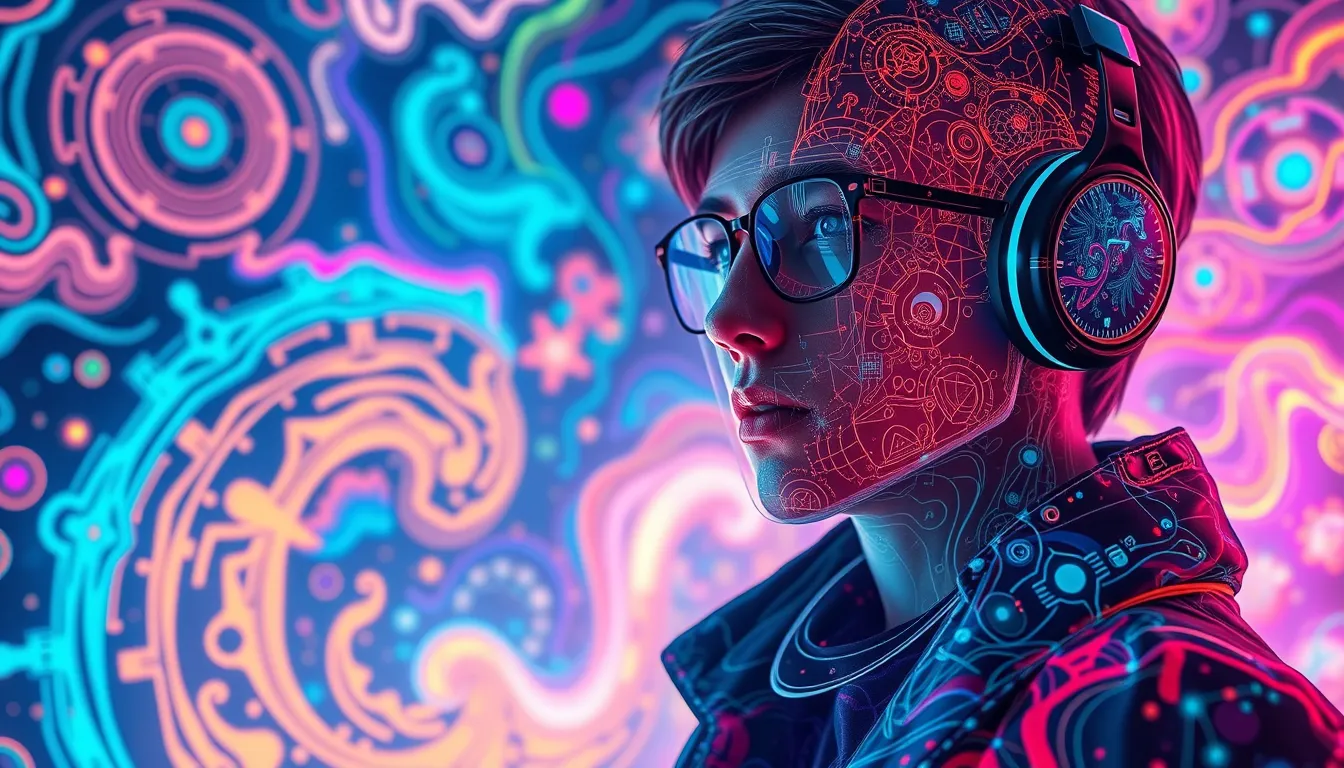Now Reading: Transformative AI Chatbots in Psychedelic Experiences
-
01
Transformative AI Chatbots in Psychedelic Experiences
Transformative AI Chatbots in Psychedelic Experiences

Transformative AI Chatbots in Psychedelic Experiences
The rapid evolution of digital mental health solutions has led to the emergence of AI chatbots, which are now playing a pivotal role in psychedelic experiences. This article explores how these advanced tools blend self-exploration technology with digital empathy to support holistic healing and mental well-being.
The Rise of AI Chatbots in Psychedelic Experiences
Recent technological innovations have redefined the boundaries of mental health care. AI chatbots are increasingly used as digital companions during psychedelic trips, offering users not only immediate support but also guided introspection. A notable discussion in a widely circulated article on Wired highlights this trend. The AI chatbots provide real-time insights, promising to revolutionize the holistic healing approach by fusing modern digital intervention with age-old practices of self-exploration.
How AI is Transforming Digital Mental Health and Self-Exploration Technology
At the heart of these innovations is the combination of digital mental health tools and self-exploration technology. Designed to mimic human empathy, these chatbots use sophisticated algorithms to generate compassionate responses. They help users navigate the emotional complexities of psychedelic experiences. Often, they encourage reflection, proactively set intentions, and deliver calming advice during intense moments. This synthesis of art and technology marks a new era in holistic healing and personal transformation.
User Experiences and Technological Innovations
Users of these AI chatbots consistently report that the digital intervention provided during psychedelic sessions offers both reassurance and clarity. The chatbots effectively ask probing questions to help articulate emotions, fears, and aspirations. Here are some key benefits observed by early adopters:
- Immediate support when traditional therapy is not available
- Personalized prompts that guide reflection and set positive intentions
- A non-judgmental, always available digital companion
Developers are continually refining these AI systems by incorporating user feedback and advanced neural network training techniques. This iterative process has transformed basic scripted interactions into dynamic, context-aware conversations that adapt to each user’s unique journey.
Digital Empathy and Ethical Considerations
As AI chatbots become more integral in guiding psychedelic experiences, ethical questions inevitably arise. While their benefits are promising, professionals emphasize that these digital tools are not a substitute for certified therapeutic expertise. Mental health practitioners caution against the possibility of over-reliance on technology. They note that, while AI can provide immediate responses and a comforting presence, it still lacks the deeper understanding that comes with human empathy.
Regulatory bodies are also scrutinizing these technologies to establish clear guidelines, ensuring that the data collected is managed responsibly and user privacy is rigorously protected. Innovations in this field have stimulated discussions about the need for transparent, ethical frameworks that balance technological advancement with safety and accountability.
AI, Psychedelic Therapy, and Future Innovations
Looking ahead, the integration of AI chatbots in psychedelic therapy holds tremendous promise. Researchers and tech experts are eager to explore the intersections of behavioral psychology, digital ethics, and artificial intelligence. By combining these fields, innovators aim to enhance the accuracy of digital interventions and further support mental well-being.
The consistent evolution of these platforms has already captured the interest of academic circles and tech communities alike. Future enhancements may include more personalized user interactions, improved emotional cue recognition, and further integration with holistic healing practices. The potential benefits include reducing anxiety, offering transformative self-reflection experiences, and establishing a new standard in digital mental health care.
Balancing Innovation with Human Compassion
While the push for technological innovation is strong, the balance between digital intervention and human compassion remains essential. AI chatbots offer a revolutionary way to support users during intense psychedelic experiences, yet experts insist they should supplement, not replace, traditional human therapy. As the debate continues, a collaborative approach that harnesses both AI efficiency and human empathy is seen as the ideal path forward.
Conclusion
In summary, AI chatbots in psychedelic experiences are transforming the landscape of digital mental health. By providing immediate, empathetic, and accessible support, these digital tools pave the way for innovative practices in holistic healing and self-exploration technology. While challenges and ethical considerations persist, the promise of digital empathy and advanced AI in therapy is undeniable. As this technology continues to mature, it will likely play an increasingly important role in guiding individuals through both everyday stresses and profound transformative experiences.
With ongoing improvements and cautious optimism from both tech experts and mental health professionals, the future of AI in therapy is bright. From offering a safe digital space to support holistic healing, AI chatbots are setting new standards in how we approach the intricate journey of mental well-being and self-exploration.

























